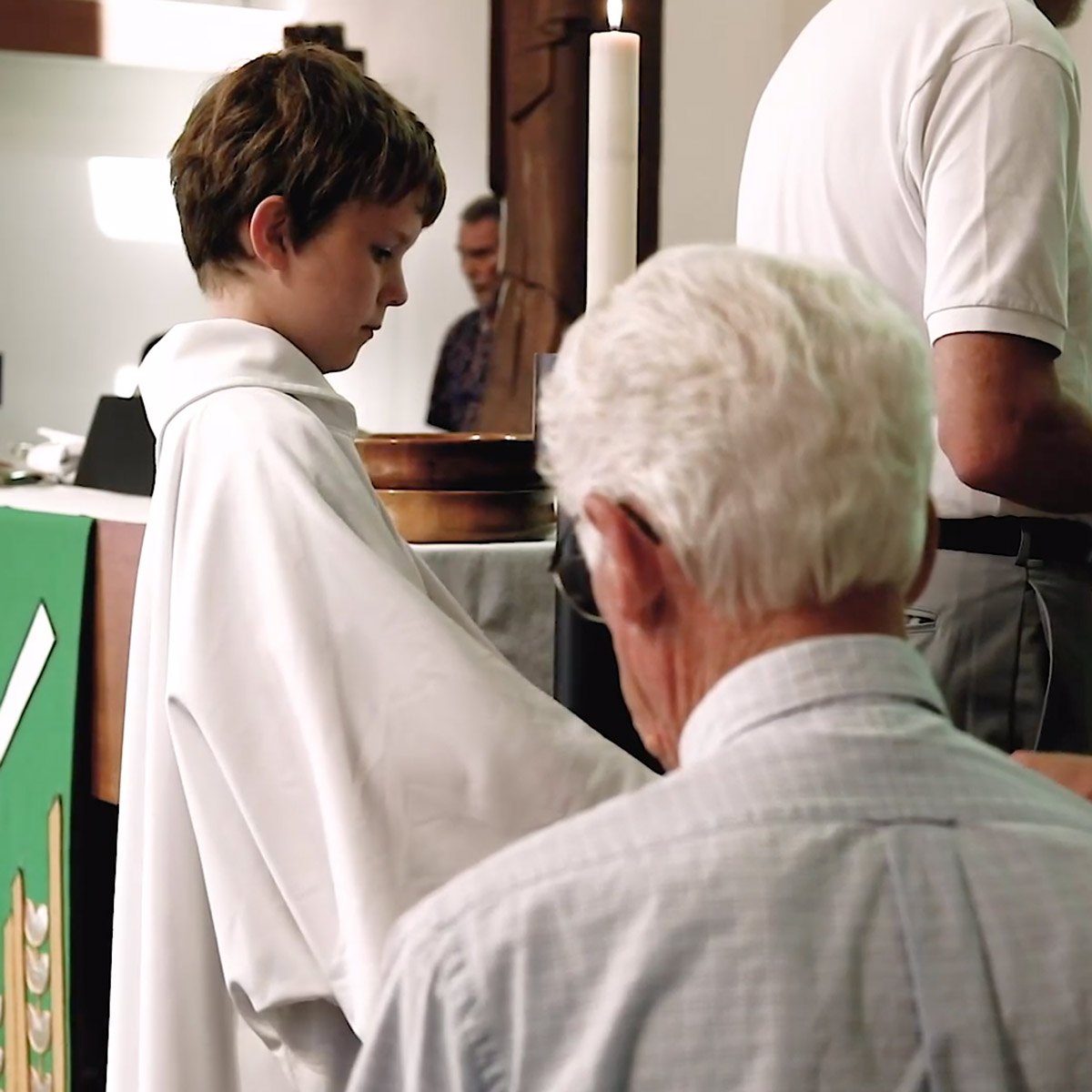Christ as Savior and Lord
We believe, teach and confess that Jesus Christ is our Savior and Lord, and that through faith in Him we receive forgiveness of sins, eternal life and salvation. We believe that Jesus Christ is the only way to heaven and that all who die without faith in Him are eternally damned. We believe that those who believe in Christ will enjoy a blissful relationship with Him during the interim between their death and His second coming, and that on the last day their bodies will be raised.
Law and Gospel
We believe that the two chief doctrines of Holy Scripture, Law and Gospel, must be constantly and diligently proclaimed in the church of God until the end of the world, but with due distinction. The Law, as the expression of God’s immutable will, is to be used by the church to bring men to a knowledge of their sins as well as to provide Christians with instruction about good works. The Gospel receives the primary emphasis in the ministry of the New Testament, for it is the message that God forgives them all their sins through Christ, accepts them for His sake as God’s children, and out of pure grace, without any merit of their own, justifies and saves them.
The Mission of the Church
We believe, teach and confess that the primary mission of the church is to make disciples of every nation by bearing witness to Jesus Christ through the preaching of the Gospel and the administration of the Sacraments. Other necessary activities of the church, such as ministering to men’s physical needs, are to serve the church’s primary mission and its goal that men will believe and confess Jesus Christ as their Lord and Savior.
Holy Scripture
We believe, teach and confess that all Scripture is given by the inspiration of God the Holy Spirit and that God is therefore the true Author of every word of Scripture. We acknowledge that there is a qualitative difference between the inspired witness of Holy Scripture in all its parts and words and the witness of every other form of human expression, making the Bible a unique book.
We believe that all Scripture bears witness to Jesus Christ and that its primary purpose is to make men wise unto salvation through faith in Jesus Christ. We therefore affirm that the Scriptures are rightly used only when they are read from the perspective of justification by faith and the proper distinction between Law and Gospel.
We believe, teach and confess that the Gospel of the gracious justification of the sinner through faith in Jesus Christ is not only the chief doctrine of Holy Scripture and a basic presupposition for the interpretation of Scripture, but is the heart and center of our Christian faith and theology.
With Luther, we confess that God’s Word cannot err. We therefore believe, teach and confess that since the Holy Scriptures are the Word of God, they contain no errors or contradictions but that they are in all their parts and words the infallible truth.
We believe, teach and confess that since the same God speaks throughout Holy Scripture, there is an organic unity both within and between the Old and New Testaments. While acknowledging the rich variety of language and style in Scripture and recognizing differences of emphasis in various accounts of the same event or topic, we nevertheless affirm that the same doctrine of the Gospel, in all its articles, is presented throughout the entire Scripture.
Original Sin
We believe, teach and confess that God, by the almighty power of His Word, created all things. We also believe that man, as the principal creature of God, was specially created in the image of God, that is, in a state of righteousness, innocence and blessedness.
We affirm that Adam and Eve were real historical human beings, the first two people in the world, and that their fall was a historical occurrence which brought sin into the world so that since the fall of Adam all men who are propagated according to nature are born in sin. We confess that man’s fall necessitated the gracious redemptive work of Jesus Christ and that fallen man’s only hope for salvation from his sin lies in Jesus Christ, his Redeemer and Lord.

















